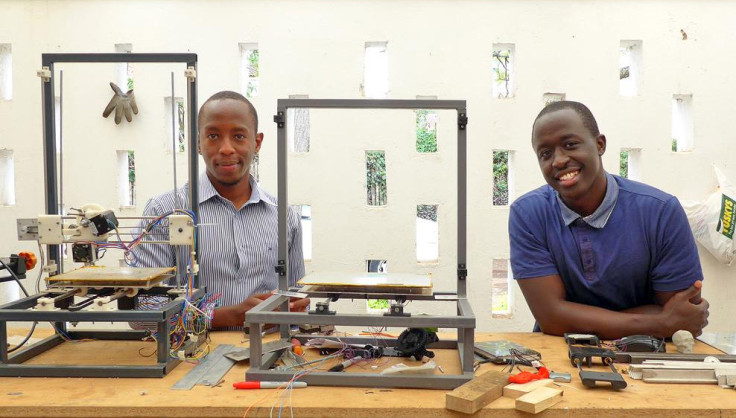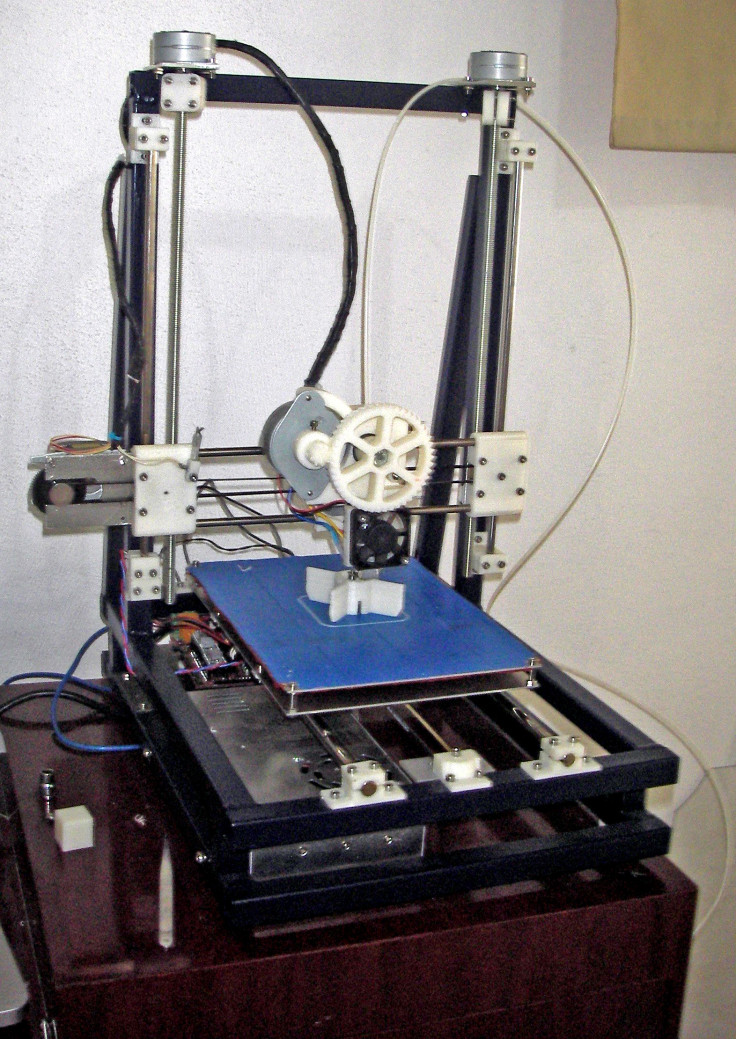UK charity turns inkjet printer e-waste into 3D printers for developing countries

UK charity Techfortrade is trying to make 3D printing affordable for developing countries by creating software that is able to take e-waste components and use them to build 3D printers. In fact, the charity says the technology is available for free online, and anyone around the world can use the same technique.
E-waste refers to discarded electronic devices destined to be recycled, reused or sent to landfill, such as old PCs, smartphones, tablets, inkjet printers, photocopiers and fax machines. Wrap UK estimates that 25% of the electronic waste equipment sent to household waste recycling centres could be re-used, and that it is worth £200m ($316m) gross a year.
But what if you could take old components from these once-treasured machines and use them to make a new machine to fulfil a new set of needs? That is what Techfortrade, a UK charity specialising in emerging technology and economic development is seeking to accomplish.
William Hoyle, Techfortrade's CEO founded the charity in 2011 after observing trucks crossing the border from Zambia to the DRC and wondering whether 3D printing would be able to decrease the dependency on trucks carrying supplies into poorer African nations.
He started the 3D4D challenge competition to encourage people to find meaningful uses for 3D printing that went beyond printing the odd Star Wars figurine, and eventually the development of 3D printing technologies became a key focus for the charity.
Creating 3D printers from locally-sourced junk
"If you go to universities in Dar es Salaam in Tanzania, there are engineering students there bright enough to understand the technology behind 3D printing, but they just don't have access to it," Hoyle told IBTimes UK.
"We wanted to make sure that developing countries that missed out on the second industrial revolution could still participate in the third industrial revolution, with 3D printing."
To that end, Techfortrade developed an open source software program called Retr3d with the ability to let people build their own custom 3D printers even when using different components from old inkjet printers and photocopiers that don't match, such as the printer head rods, motors, cogs and pulleys used to pull the print-head across the rod, as well as small fans to cool the machine.

And no matter how the machine is built, Retr3d is still able to calibrate the 3D printer to get it to work.
Even the heating coil used to heat up the 3D print-bed is sourced from e-waste, and Hoyle says that using these components, together with the costs of a local welder and some aluminium, Techfortrade is able to bring the cost of making a 3D printer down to between $100-$120 per unit.
But the filament used by the 3D printer is still expensive, and conventional reels of PLA filament imported from manufacturers currently costs about $60-$70 per reel in places like Dar es Salaam and Nairobi.
So Techfortrade has developed an ethical filament extruder machine costing under $1,000 able to recycle polyethylene terephthalate (PET), which is used to make plastic bottles, into reels of 3D printer filaments costing just a few dollars per reel.
Of course, this filament is not as green as corn starch-based PLA, but it is much better than sending more plastic bottles to landfill, or shipping it to China, as is currently done in Tanzania, for other companies to profit from.
Setting up a cottage industry
Techfortrade is working with groups of entrepreneurs in Tanzania, Kenya and West African countries, teaching them how to build e-waste 3D printers and seed-funding the micro businesses to see if they are sustainable.
"We think there is the potential to create small community-based 'digital blacksmiths' – small businesses in places like Nairobi to make things that are of use to the community, such as educational aids, water and sanitation devices, medical devices or toys, as well as offering 3D printer services to the community, which they eventually receive payments for," said Hoyle.
"Our hope is that over the next two years, we'll be able to create a blueprint for how these businesses can operate in a sustainable way, to eventually create a network of social enterprises working to use 3D printing to solve problems in the developing world."
Although Retr3d is designed for the developing world, Hoyle says there is no reason why people in the UK and other countries cannot download it and use it to make their own e-waste 3D printers, which could perhaps speed up the use of 3D printers in schools.
Many charities and NGOs are keen to utilise 3D printing, and now Techfortrade is looking for companies in the 3D printing, polymer and technology industries with which to create partnerships.
"Our software might be a breakthrough but we're only a small organisation, and access to expertise from a big technology company is far more valuable than money," stressed Hoyle. "We'd love to find an affordable way to export e-waste from the UK to developing countries for the printers, and if we could get help from chemists, we could perhaps develop a better, greener filament."
© Copyright IBTimes 2025. All rights reserved.






















